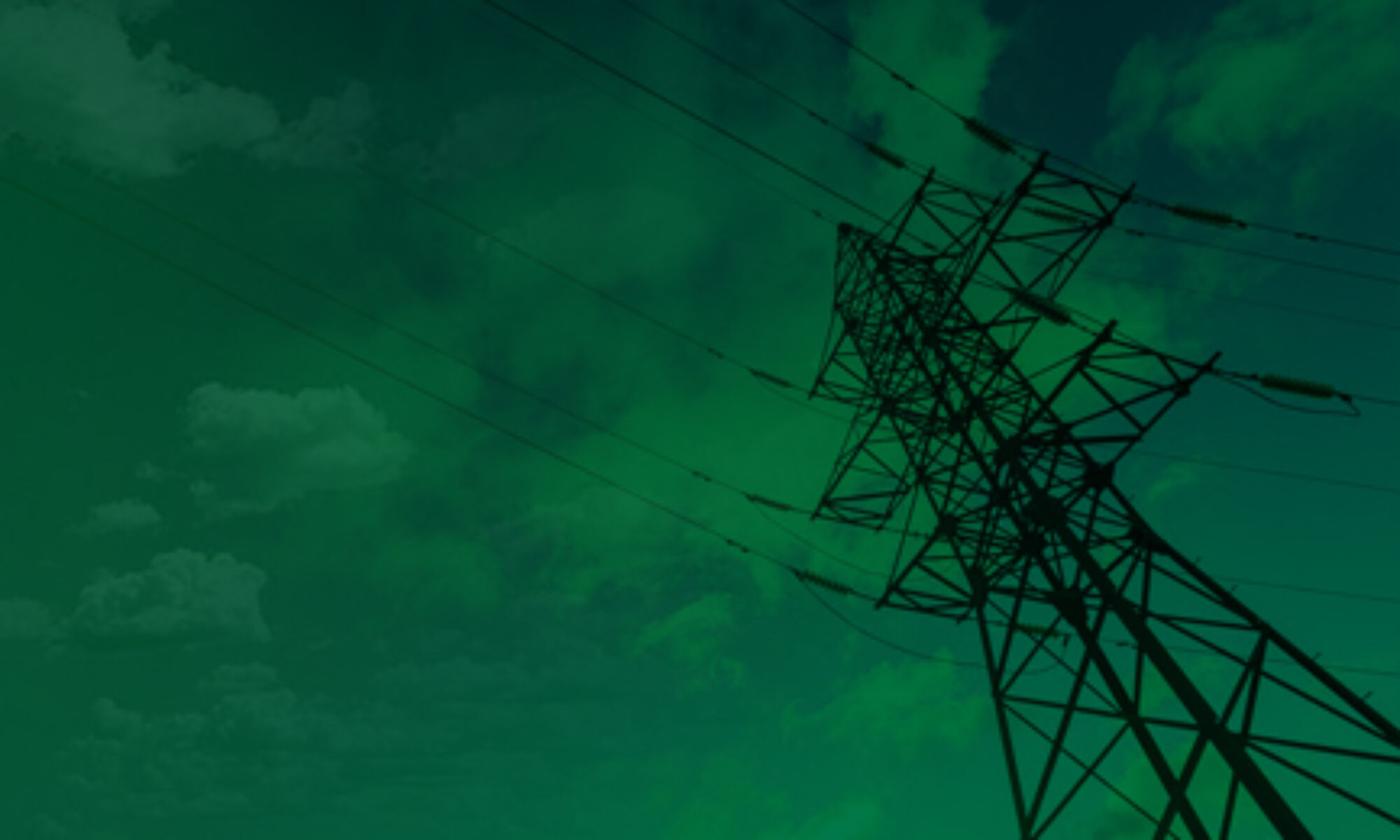March 27, 2024
Tools for LifeCycle Management of T&D Switchgear Based on Data From Condition Monitoring Systems
MODERATORS
Nicolas Gadacz [GE Vernova]
Description
In this presentation, Nicolas will give an overview of the
work conducted in CIGRE/CIRED Joint Working Group A3.43
entitled “Tools for lifecycle management of T&D switchgear
based on data from condition monitoring systems.” The
purpose of this working group is to provide guidelines to
identify critical condition indicators of T&D switchgear,
relate user’s experiences of using continuous condition
monitoring systems and periodic diagnostics to establish
criteria for developing a Switchgear Health Index (SHI)
computation methodology. Compliance with digital
substation and future trends are also addressed.
September 26, 2023
Off-Shore Wind Projects: Items to Study and Confirm
MODERATORS
Mark McVey [Dominion Energy]
Description
In this presentation, Mark will give an overview of items to study and confirm for on-shoring power from off-shore
wind projects. The speaker will share his recent experiences based on his ongoing involvement in off-shore wind projects and
with industry working groups and committees.
Mark McVey is an ET Equipment & Technical Sr. Strategic Advisor with Dominion Energy with over 38 years of experience, He is currently part of Operations Engineering where he provides technical support to all business units in Power Delivery, is an asset manager for major equipment, and Subject Matter Expert for Flexible AC Transmission devices. Over his career with Dominion Energy, Mark has held positions in Substations Engineering, Power Quality, Division and District Operations Supervisor roles, and Field Engineering Control Operations. Mark holds a B.S. in Electrical Engineering from Virginia Tech.
Mark has made significant contributions to the technical work of CIGRE, notably in the areas of Study Committee B3
Substations and A3 High Voltage Equipment. Mark has presented six tutorials at various CIGRE Symposia and Paris Sessions
focused on AIS Design for Severe Climates, Guidelines for Safe Work Methods in Substations, and Fundamentals of
Grounding. He has authored or coauthored over 18 papers, articles, and handbooks, and several CIGRE publications.
Mark is an IEEE Senior Member since 2013 where he has chaired various working groups. He is the IEC USNC Appointed
Chair and Advisor to TC 33 All Power Capacitor and Their Applications 2018-2022 and was appointed Expert Emiratis TC 33 in
2019.
Mark is the recipient of the CIGRE Pioneer 2020 E-Session Achievement Award, the USNC CIGRE Atwood Associates Award
2018, CIGRE Technical Council Award B3 2018 Paris, and CIGRE Distinguished Member 2022. He was the 2023 recipient of
the USNC CIGRE Dale Douglas Award for Technical Achievement.
June 17, 2021
Addressing Resilience of Texas Electrical Grid and Beyond – Executive Perspective
Webinar Recording | Questions & Answers*
MODERATORS
Damir Novosel [Quanta Technology] & John McDonald [GE]
PANELISTS
Mark Carpenter [ONCOR]
Mark Lauby [NERC]
Tom Pierpoint [Austin Energy]
Doug Howe [Board of Directors at New Mexico Renewable Energy
Transmission Authority]
Description
The evolving impact of climate change has resulted in severe and abnormal weather events emerging across the world. The record low temperatures and severe winter storms observed in Texas in the winter of 2021 have caused massive outages, leaving 4.4 million homes without power for long durations.
It has further emphasized importance of improving resilience of the Texas electric grid as well as the overall North American grid. As the modernized and resilient electrical grid is also an enabler to increase penetration of renewable resources and electrification, it is important to review the main causes of the issues in Texas and how it could be avoided in the future. This panel of executive industry leaders will provide unique and balanced perspective on how to improve operation of the Texas electrical grid in the context of overall plans for improving electrical grid resilience.
October 14, 2020
Impacts of High Share of Inverter-Based Resources on System Inertia and Frequency Control
View Webinar Slides | View Webinar Recording (members only)*
Speakers
[Moderator] Dr. Julia Matevosyan, ERCOT
Dr. Diptargha Chakravorty, TNEI
Dr. Papiya Dattaray, EPRI
Description
As a result of environmental incentives and policies as well as rapid technological development, power systems around the world are experiencing an increased number of inverter-based resources (IBRs), such as wind, solar and battery storage, being built. One of the challenges is that IBRs do not contribute to synchronous inertial response, while on the other hand, due to low/zero operating costs, displacing synchronous generation that provides inertial response in the unit commitment. Inertial response provides inherent resistance to change in system frequency after large generation trip events. If system inertia is low, the rate of change of frequency will be higher for the same size of generation loss. This leaves less time for any existing frequency control measures to respond and arrest system frequency before it triggers Under-frequency Load Shedding (UFLS). System operators, researchers, manufacturers and developers in countries that are experiencing rapid growth of IBRs have developed methods and technologies to address these issues.
This webinar will covered fundamentals of frequency control and impacts from high share of IBRs on overall frequency performance, and mitigation measures and technologies to address some of the challenges.
The presenters are members of CIGRE Joint Working Group (JWG) C2/C4.41 – Impact of High Penetration of Inverter-Based Generation on System Inertia of Networks. The group started three years ago with the objective to summarize and formulate methods for system operation in low inertia conditions in order to prepare for the ongoing energy transition. The JWG’s work will conclude in the first quarter of 2021 with the Technical Brochure and the group will host a Tutorial in December 2020.
October 21 & 28, 2020
Virtual Tutorial
Accelerating AI on the Grid: PMU Fundamentals & Intro to AI
Attendees of this webinar will receive a certificate for .4 CEU credits.
Day 1 Slides | Day 2 Slides | View Webinar Recording (members only)*
Instructors
Alexandra “Sascha” von Meier, University of California, Berkeley
Kevin Jones, Dominion Energy
Sean Murphy, PingThings
Laurel Dunn, University of California, Berkeley
Mohini Bariya, University of California, Berkeley
Miles Rusch, University of California, Berkeley
Abstract
This two-part virtual tutorial is geared at training practitioners on how to use AI to analyze PMU (synchrophasor) data. The first session (PMU fundamentals) will provide a foundation for understanding and interpreting PMU measurement data and applications to practitioners at electric utilities. The second session (Intro to AI) will provide an introduction to Artificial Intelligence (AI), and will give attendees hands-on experience using AI to analyze PMU data in Python. The course will discuss opportunities for PMU data analytics to change best-practices in the industry, and participants will become practiced at using tools that can streamline workflows for digesting and visualizing time series data at scale.
Day 1 | October 21, 2020 | PMU Fundamentals
View Webinar Slides | View Webinar Recording (members only)*
Day 1 will teach fundamental concepts from power systems engineering related to interpreting and analyzing PMU measurement data. This tutorial will both educate newcomers, and will serve as a useful refresher for seasoned experts. The course will go on to describe how PMU data are being applied in utility operations. Panelists will include Kevin Jones who has been instrumental in launching the PMU analytics program at Dominion. Their approach has been to connect analysts across the company with the training and tools they need to easily access PMU data; the program has unlocked unexpected opportunities for decision-makers to act on data in a more timely and more effective manner.
Day 2 | October 28, 2020 | Intro to AI
Day 2 will provide an introductory training for practitioners to start using AI in their own work. The course will begin by covering fundamental concepts related to AI and big data, and will motivate the need for practitioners in energy to become well-versed in AI tools. The course will step through interactive coding exercises using the National Infrastructure for AI on the Grid (NI4AI) Python API to access publicly hosted PMU data. NI4AI is built on PingThings’ PredictiveGridTM platform, a state-of-the-art tool optimized to support big data visualization and analysis workflows. Participants are requested to come prepared with a login to ni4ai.org and with Python installed (both are free). Exercises will assume some familiarity with Python, though participants with no programming experience will benefit from exposure to the concepts and tools presented.
| PMU Fundamentals (Day 1)
1. Understanding PMU data 2. Applications for PMU data 3. Introduction to NI4AI | Intro to AI (Day 2)
1. Big data analytics and prediction 2. Interfacing with PMU data in Python 3. Use cases for PMU data 4. Closing remarks and outlook for AI on the grid |
November 5 & 12, 2020
Virtual Tutorial
View Webinar Recording (members only)*
Enabling Distributed Intelligence with the Open Field Message Bus (OpenFMB) Framework
Attendees of this webinar will receive a certificate for .4 CEU credits.
Instructors
John Camilleri, PSC
Dr. Stuart Laval, Duke Energy
Larry Lackey, Open Energy Solutions Inc. (OES)
Description
The OpenFMB Interoperability Framework standard was ratified in 2016 by the North American Energy Standards Board (NAESB). Today, the Utility Communications Architecture International Users Group (UCAIug) maintains the user’s group and is the Interoperability Testing Certification Authority. These two hour sessions provide both an overview of the standard and industry participation, as well as technical application.
Session 1 | OpenFMB 101: Introduction of the Standard, Business Drivers, and Industry Landscape
The OpenFMB Interoperability Framework has numerous benefits when federating operational grid-edge data in the field and enables new ways of addressing present and future challenges at utilities. This interactive session introduces the fundamental details of the OpenFMB standard, evolving grid-edge business drivers, and the key ecosystem players. Attendees will hear from utilities, vendors, and other active OpenFMB users group members on their experience.
Attendees of this session will learn about the:
- Fundamentals of OpenFMB Standard and Architecture
- Business drivers for Distributed Intelligence and Data Federation at the Grid-Edge
- OpenFMB Adoption and Industry Landscape
- Relevance of Open-Source
Session 2 | OpenFMB Implementation Approach: Current Developments and Technology Stack
During the session, attendees will review use cases, platform independent data models, and adapters. There will be discussions on lessons learned, best practices and limitations. In addition, we will review the concepts of system management and cyber security controls.
Attendees of this session will learn about the:
- Key Enabling Technologies for OpenFMB
- Messaging and data model extensibility of the framework
- Use-cases that leverage Distributed Intelligence
- Cybersecurity enhancements inherent to OpenFMB
- Roadmap of Distributed Applications
*If you are a member of another national committee and would like access to this webinar recording, please email Krista Beams at kristafay.beams@gmail.com with your CIGRE member number.

THE CIGRE ACADEMY WEBINAR SERIES IS SPONSORED BY













